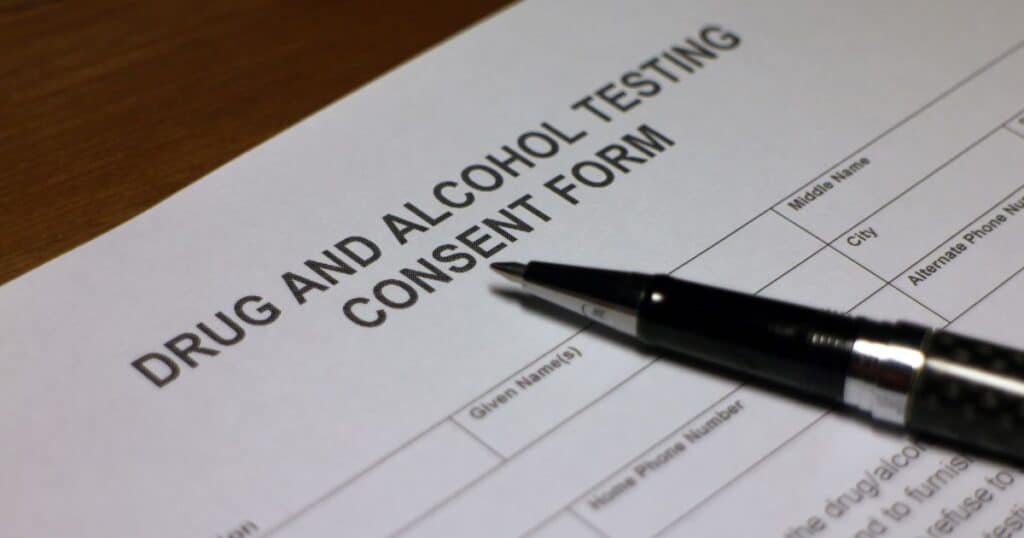The American Transportation Research Institute (ATRI) recently completed an analysis of current truck-driving marijuana testing policies. The findings were based on survey data from drivers, with a majority of whom stated that the current regulations need to be changed. According to this survey, most truck drivers view marijuana legalization and testing reform as a way to improve industry standards.
One important factor in reforming marijuana drug tests is understanding how long cannabis stays in a person’s system. THC – the chemical responsible for most of marijuana’s psychological effects – can remain detectable in urine tests up to 30 days after last use, while other drugs, such as cocaine or opiates, only stay in the system for 2-3 days.

This means that many truck drivers are being taken off the road due to testing for cannabis, even though they are not impaired.
The current drug testing system is ineffective in determining impairment, which has become a major problem for the trucking industry. While some argue that marijuana should remain classified as a Schedule I drug under federal law, others point out that drivers who consume it responsibly should still be allowed to operate safely. With this in mind, the ATRI survey reveals that most truckers believe new policies and standards must be implemented.
This survey has highlighted the need for change in the trucking industry’s approach to marijuana drug testing. This article will explore pathways for federal government action, outline necessary actions before legalization takes place, and discuss how truck drivers view this issue.
Truck Drivers On Current Policies
The ATRI survey shows that most truckers are not in favor of the current marijuana testing policies, and this could be one of the reasons for a driver shortage.
Many drivers feel like they are being unfairly targeted or punished for consuming cannabis responsibly, which can lead to feelings of disenfranchisement and frustration. This sentiment is echoed by those who choose not to consume cannabis – as many feel that marijuana is still unfairly stigmatized despite its growing acceptance in society.
Some truckers have stated that they would prefer drug testing policies that focus on impairment rather than blanket bans on all cannabis use – as this would create an atmosphere where responsible consumption was encouraged instead of discouraged.
Furthermore, it would provide more clarity about what expectations employers have regarding drug testing and what consequences could be faced when a driver tests positive.
Study Gives Consideration to Two Possible Federal Pathways
The ATRI survey revealed two pathways the federal government could take in the near term regarding marijuana, and both present challenges for the trucking industry.
The first option is to maintain its Schedule I status. This would mean that marijuana would continue to be prohibited under federal law, with drug testing policies remaining largely unchanged. While this option provides certainty and maintains consistency across jurisdictions, it does not address the issue of impairment testing or account for states which have legalized marijuana use – leaving drivers who consume responsibly with limited options when it comes to legally operating vehicles.
The second pathway is toward legalization and regulation of cannabis use nationally. This approach carries several implications for the trucking industry, starting with a need for an accurate means of testing for marijuana impairment in real-time. It also requires a process to establish and enforce standards for determining if a driver is impaired by marijuana, as well as protections from state or federal laws that would prohibit screening employees for cannabis use.
Necessary Actions Before Legalization Takes Place
Before marijuana can be legalized at the federal level, certain steps should be taken into consideration to ensure highway safety remains unimpaired. The first of these is the development of a nationally recognized marijuana impairment test and standards. This would involve researching existing methods – such as saliva tests or measuring levels of THC in blood or urine – and focusing on those which are most accurate in determining if someone is impaired by cannabis use.
The second step is protecting carrier choice when screening for marijuana use, as this would ensure that employers have the right to decide what policies they want to implement within their organizations. This could include stricter screening than the law requires or considering drivers who consume marijuana responsibly.

Finally, it is also important to increase knowledge of marijuana’s impacts on highway safety through research and data collection. This would involve looking at crash statistics from states which have already legalized cannabis use, as well as carrying out observational studies and surveys with truck drivers to assess how legalization has impacted their driving habits.
By taking these steps before legalizing marijuana nationally, the federal government can ensure that the trucking industry remains a safe and reliable means of transportation for all Americans.
The findings of the ATRI survey demonstrate that most truckers view marijuana legalization and testing reform as an opportunity to improve industry standards. However, before this can happen, the federal government must ensure that adequate measures are taken to accurately test for impairment, protect carrier choice when it comes to screening employees, and increase knowledge of marijuana’s impacts on highway safety.
Ultimately, these steps will be necessary in order for the trucking industry – and all other forms of transportation – to remain safe while allowing drivers who consume responsibly to operate legally. It is only then that marijuana legalization can be pursued with greater confidence at a federal level.
Enjoyed that first hit? Come chill with us every week at the Friday Sesh for a freshly packed bowl of the week’s best cannabis news!
















